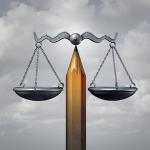Imagine going to the doctor's office. Noticeably absent are any modern tools -- laptops, DNA tests, X-ray scanners. He likes to do things the old-fashioned way. Medicine was better 100 years ago.
media bias
"Lying" is considered one of those words civilized people should never say. That's why politicians never use it. Instead, their opponents are "misinformed" or "misspeaking" or "using alternative facts."
It's that time of year again. Flowers are beginning to bloom, trees are turning green, the birds are chirping a little louder ... and the Environmental Working Group is scaring you about perfectly safe and healthy food.
In a recent documentary, religion scholar Reza Aslan ate a small piece of huma
A common question I hear again and again is, "How do I know if a news story is fake?" There is no easy answer1.
Soda taxes are many things. Obnoxious. Unscientific. An example of government overreach. The one thing they aren't is racist, yet precisely that case was made by Seattle Times reporter Gene Balk1.
After more than six years in science journalism, I have reached two very disturbing conclusions about the craft.
Science is one of the few institutions in America that has largely remained above the hyperpartisanship gripping our nation.
Back when I was editor of RealClearScience, Slate's science page was a daily must-read.
2016 was a year to forget. A rough-and-tumble election, partisan rhetoric and "fake news," and the loss of many beloved and talented people -- from Prince to Carrie Fisher -- made this calendar cycle a bit more difficult than most.












